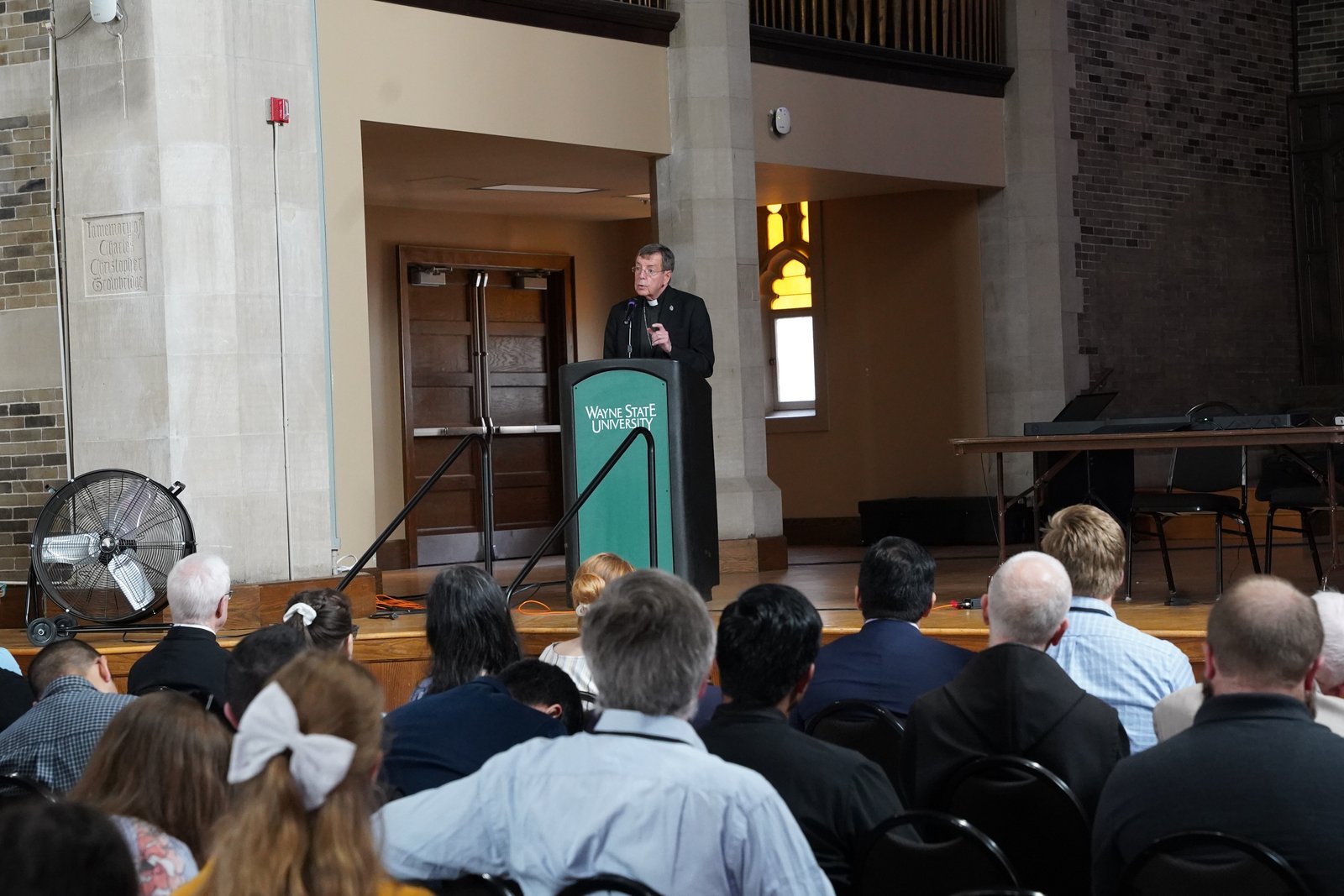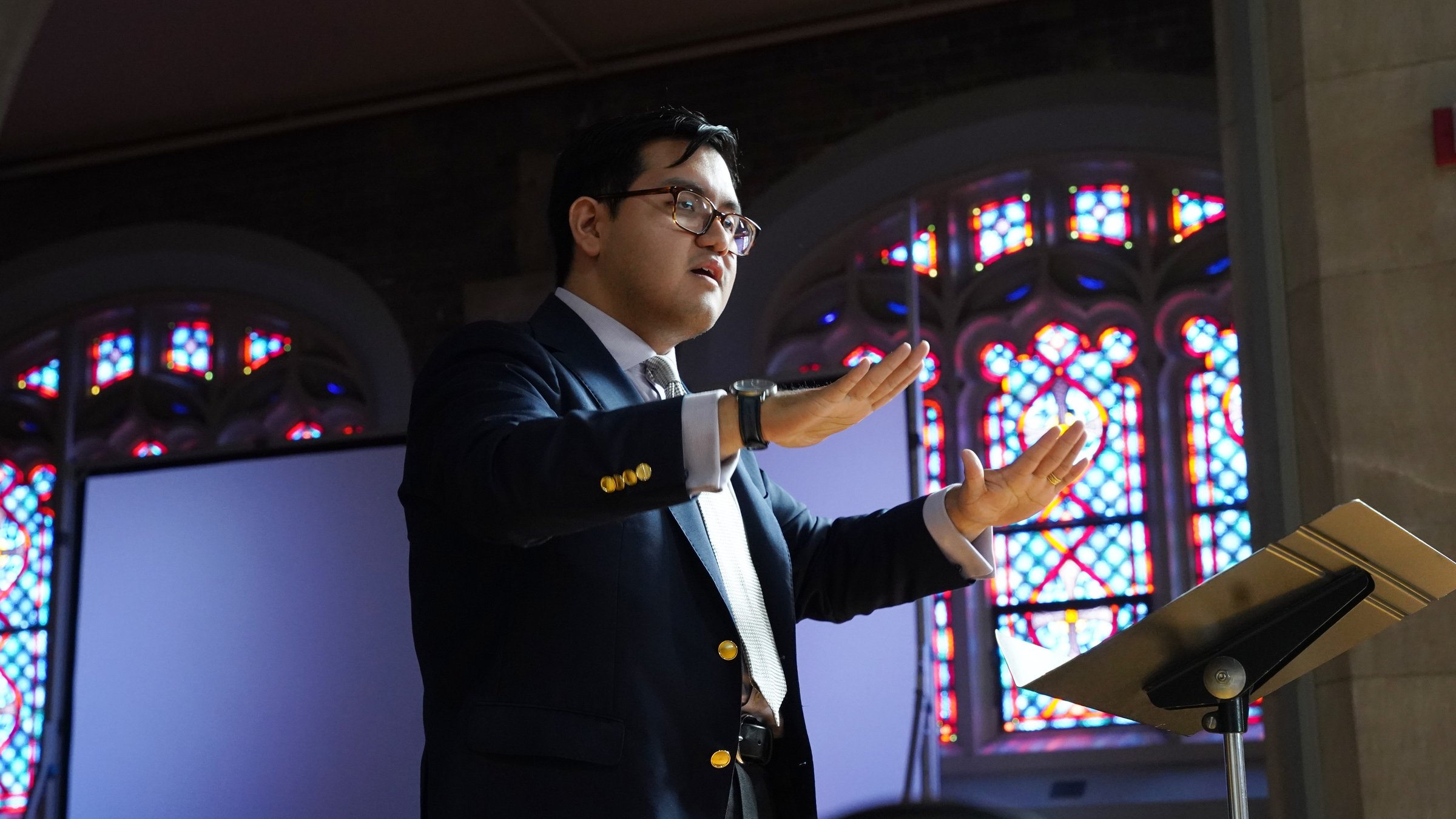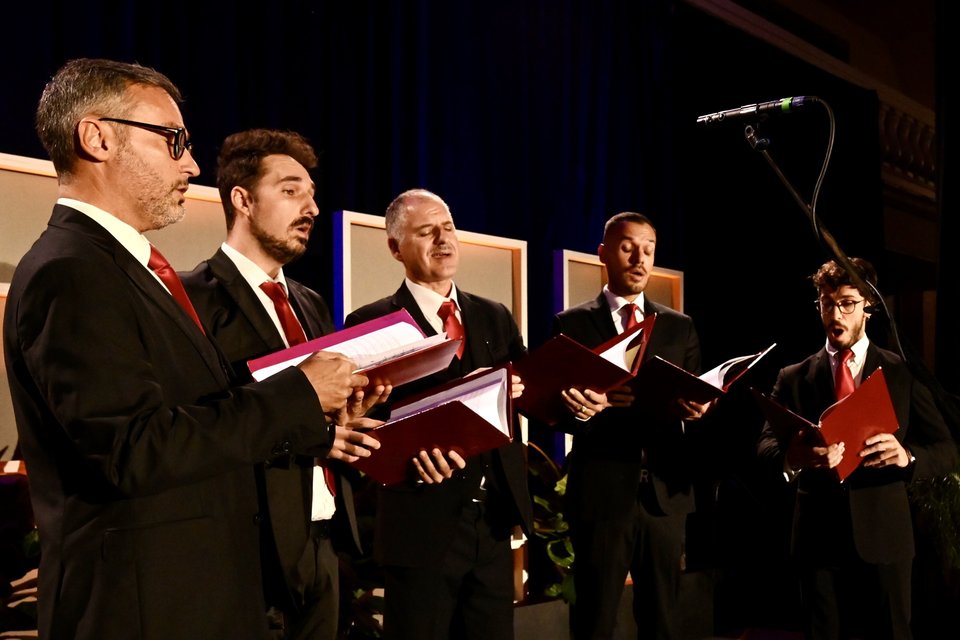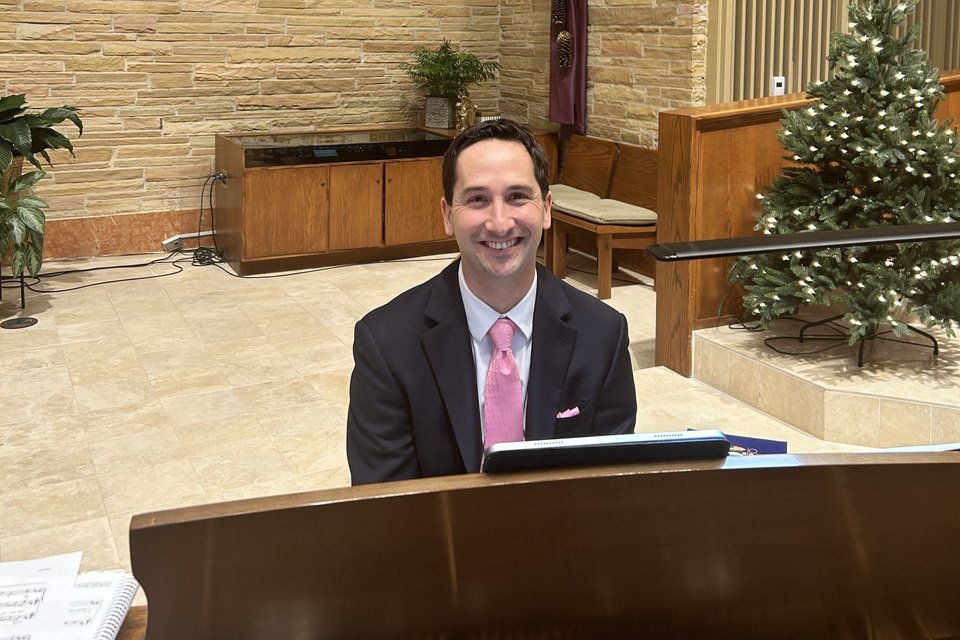33rd annual Sacred Music Colloquium helps church musicians recharge spiritually, learn to 'sing the Mass, not just sing at Mass'
DETROIT — Church musicians from across the country gathered in Detroit from June 19-24 for the 33rd annual Sacred Music Colloquium, a weeklong workshop and symposium centered on chant and polyphony in liturgical music.
The gathering, hosted by the Church Music Association of America, took place at Old St. Mary’s Church in Greektown and on the grounds of Wayne State University, where church musicians participated in workshops, heard from keynotes speakers on the importance of sacred music in worship and ways they can incorporate chant in their parishes.
“The Sacred Music Colloquium is an annual event the Church Music Association has had for 33 years, bringing musicians from all over the country and other countries for six days of learning and sharing in the sacred liturgy,” Janet Gorbitz, general manager of the Church Music Association of America, told Detroit Catholic. “We have liturgies each day with music all provided by the participants themselves.”
The conference is geared toward music ministers who want to learn more about Gregorian chant, be it in traditional Latin, or standard chants in the vernacular that assist the congregation in participating in the Mass.

“When people learn the actual chants of the Church that have been handed down for more than a thousand years, the parts the laity are intended to sing, they are invited to fully participate in the Mass,” Gorbitz said. “It is one of the key things sacred music can help accomplish.”
The colloquium featured breakout sessions during which musicians learned how they best can incorporate sacred chant in the liturgy and how a music minister’s selections of hymns and chants can better intertwine with the liturgical readings of the Mass.
Fr. Robert Pasley, chaplain of the Church Music Association of America and a priest for the Diocese of Camden, N.J., said musicians learning about the traditional chants of the Church, the sacred polyphony, and choir music enriches the liturgical life of the Church.
“The Second Vatican Council said sacred music is a treasure of inestimable value, and the Gregorian chant has first place in that,” Fr. Pasley said. “In the last years, people have not encouraged that. We are trying to shout from the rooftops that this is important, this is what the Church wants. We want the musicians gathered here to take the skills they learn here to teach people how to sing the Mass, not (just) sing at Mass."
There's a crucial difference, Fr. Pasley explained.
“To sing the Mass means the priest and people sing the text in the missal,” Fr. Pasley said. “The priest sings, ‘The Lord be with you,’ the people respond, ‘And with your spirit,’ in chant. The readings can be chanted. The priest chants the dialogue of the Preface, the Our Father, he sings all his parts, and the people sing in response.

"We can put hymns in the Mass, but those are extraneous to the Mass," he added. "But the main thing is to get people actively singing whole parts of the Mass, the singing back and forth, that is the ancient practice of the Mass.”
The conference schedule included Masses celebrated at Old St. Mary’s in the ordinary form in English, Spanish, and Latin, and a Traditional Latin Mass in the extraordinary form, an example of how sacred music, chant and polyphony can be incorporated into every Mass, regardless of a parish's liturgical preferences.
Detroit Archbishop Allen H. Vigneron gave a keynote address June 21, stressing to music ministers that they play a key role in the Eucharistic Revival taking place in the United States.
“As the principal pastor in southeast Michigan, I want to offer my warm welcome and glad to offer my hospitality to you, key leaders in the Eucharistic Revival and the liturgical revival and so essential to the new evangelization, to which the particular Church in the U.S. have concentrated our first and best effort,” Archbishop Vigneron told the gathering.
Archbishop Vigneron — who repeatedly admitted music was not his particular expertise — stressed the role of music, and in particular, chant, in giving God thanks during the celebration of the Eucharist.

“To invoke a text from Sacred Scripture, that I think helps us understand the very sacredness of the liturgy, is from the book of Tobit. The Archangel Gabriel called Tobit ‘to bless God and give thanks for all the things God has done for you, by blessing and extolling His name in song. Bless and honor Him and not be slack in offering thanks.'
“Lord God, help us appreciate in our own age ... the mandate of your archangel, that you are glorified,” Archbishop Vigneron added.
Beyond learning about the importance of chant, the colloquium is the spiritual refreshment musicians receive when they are surround by fellow musicians and reconnect to the meaning behind their work, Fr. Pasley said.
“This is a spiritual-like experience where they are learning music, the techniques of music, but are also invited to pray alongside the music,” Fr. Pasley said. “Everything they do during the day is a work toward the ultimate part of the day, when Mass is offered.
“We have confessions every day, and we have morning and evening prayer and we sing that," Fr. Pasley added. “We encourage them to make this a spiritual event, and we’ve had many conversations with people whose hearts have been so warmed by this, that they have gone to confession for the first time in years and are more involved in their faith. It’s really beautiful.”
Copy Permalink
Sacred music












